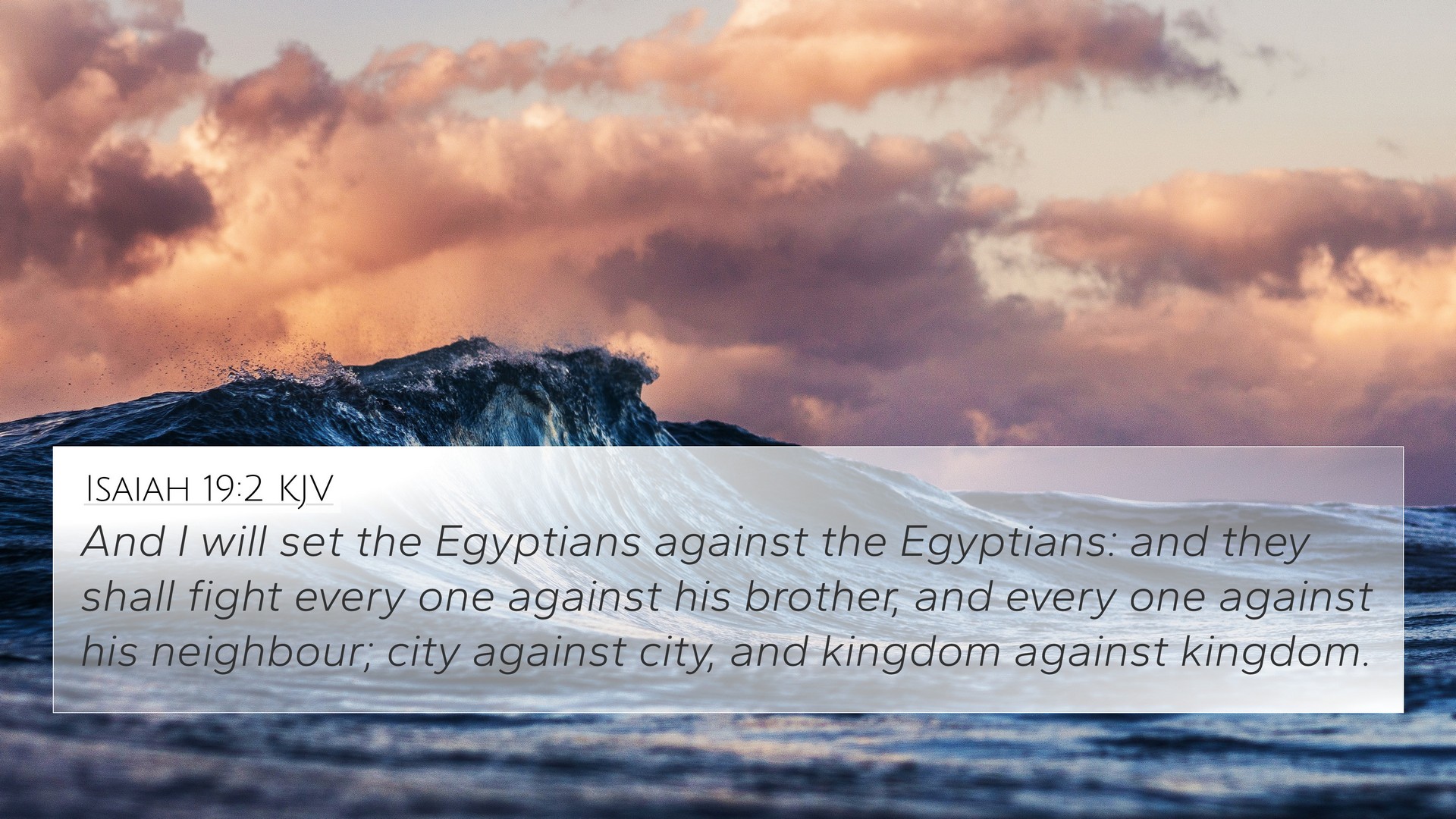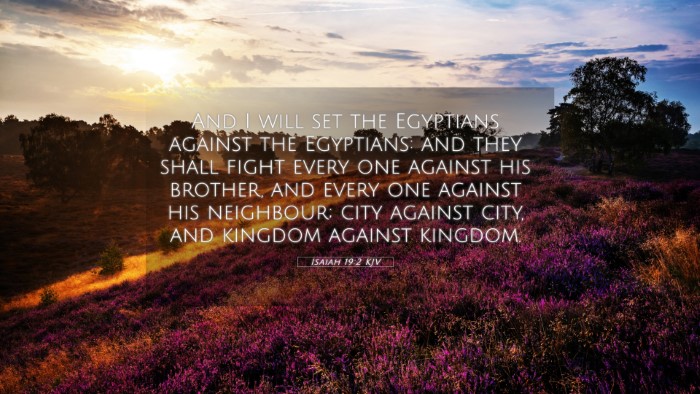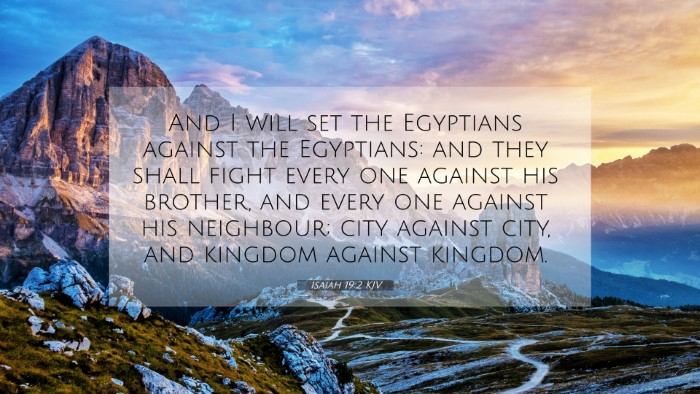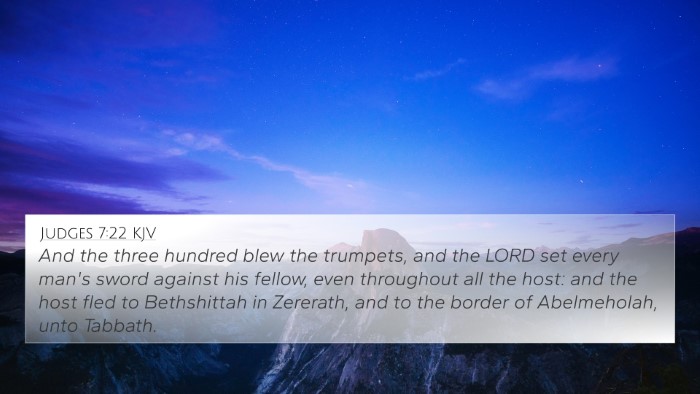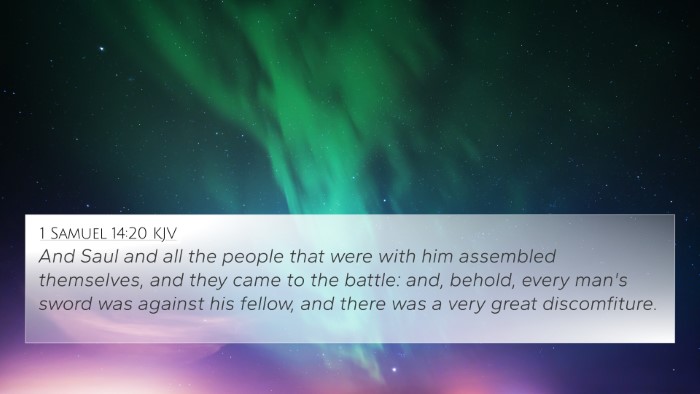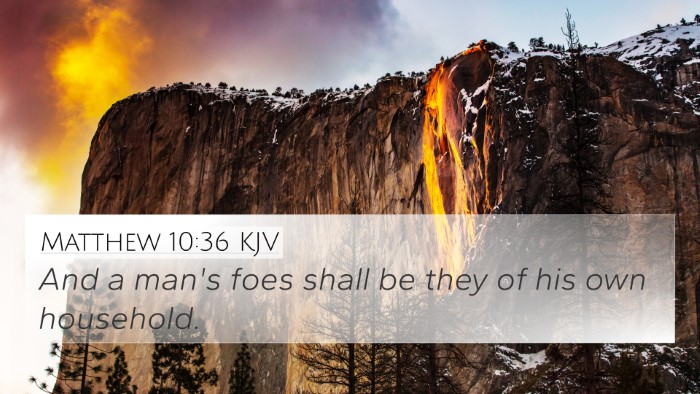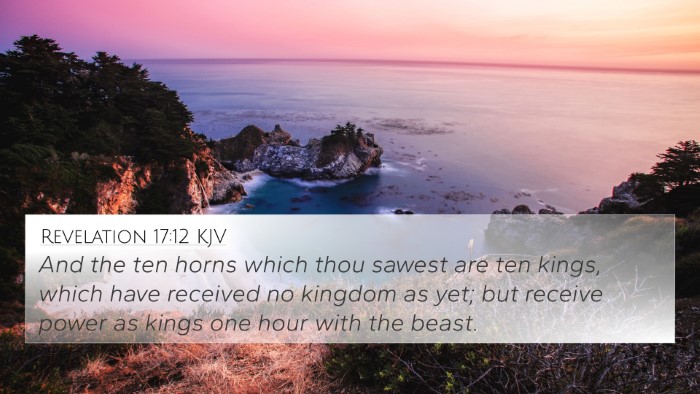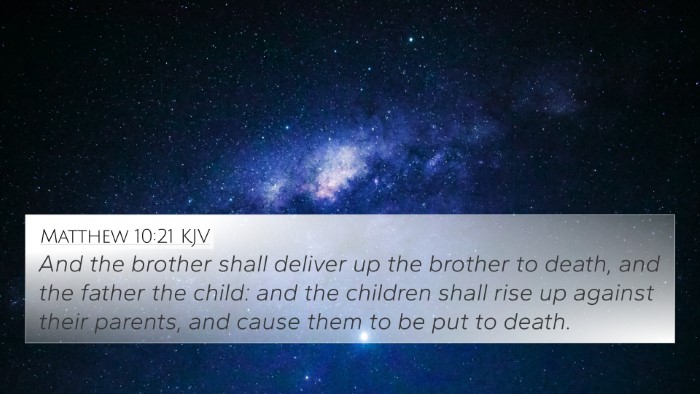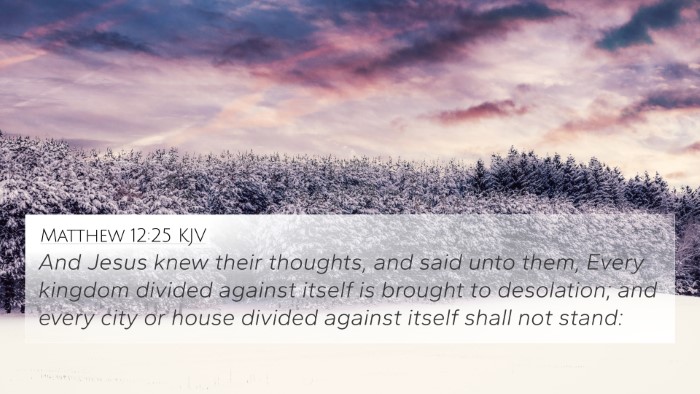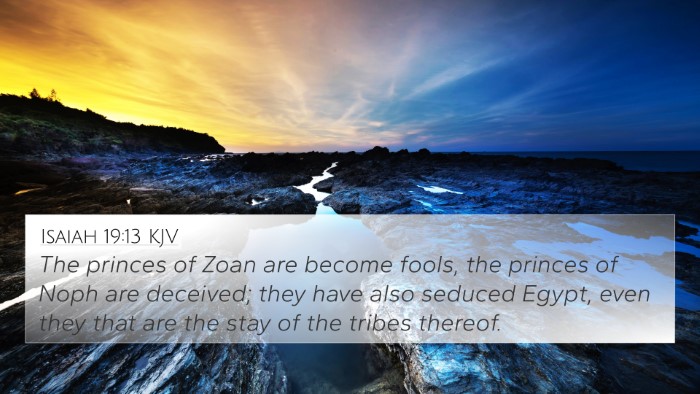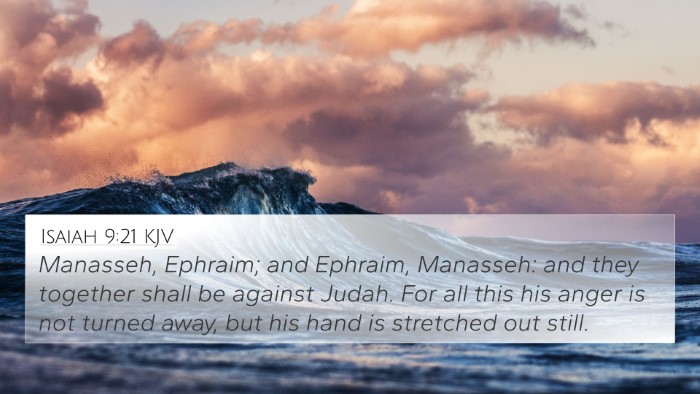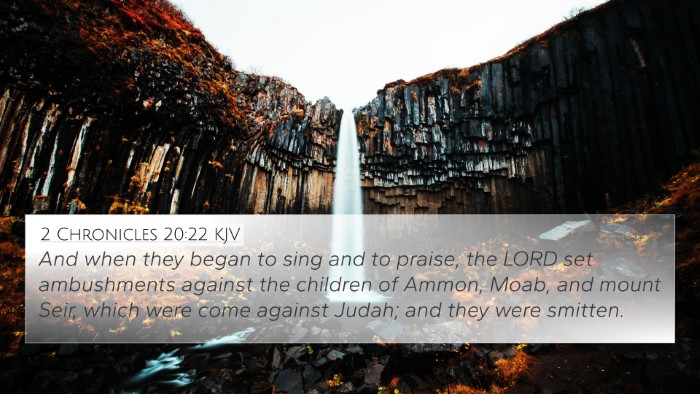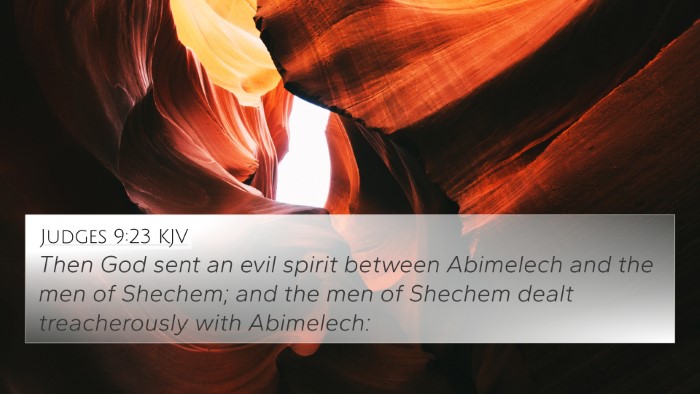Understanding Isaiah 19:2
Bible Verse: Isaiah 19:2
Isaiah 19:2 states, "I will set the Egyptians against the Egyptians; and they shall fight every one against his brother, and every one against his neighbour; city against city, and kingdom against kingdom."
Summary of Isaiah 19:2
This verse captures God's judgment against Egypt, portraying a scene of internal strife and conflict. The phrase "I will set the Egyptians against the Egyptians" suggests a profound unraveling of unity within the nation, indicating that God is the orchestrator of this chaos as part of His divine plan. The imagery of fighting "every one against his brother" reflects deep divisions among people, which often serves as a consequence of turning away from God's commandments.
Commentary Insights:
-
Matthew Henry:
Matthew Henry emphasizes that this prophecy reveals the ultimate downfall of Egypt due to its idolatry and rebellion against the true God. Internal conflicts, as described, manifest as God's retributive justice, leading to a weakened state unable to unify in the face of external threats.
-
Albert Barnes:
Albert Barnes highlights that the verse illustrates the breakdown of social order and the fraternal ties that should bind a society together. This internal division points to the broader principle that when a nation forsakes God, it can expect civil unrest and discord, as divine judgment leads to societal collapse.
-
Adam Clarke:
Adam Clarke notes that the context of this strife may be understood as a fulfillment of God's sovereignty, actively utilizing the internal conflicts to fulfill His judgments. He argues this serves as a warning to all nations regarding the consequences of leading lives estranged from divine principles.
Bible Cross References:
Isaiah 19:2 can be cross-referenced with the following scriptures for a deeper understanding of its themes:
- Isaiah 9:21 - "Manasseh against Ephraim, and Ephraim against Manasseh; both together shall be against Judah." This reflects internal divisions among the tribes of Israel.
- Jeremiah 50:36 - "A sword is upon the liars; and they shall dote: a sword is upon her mighty men; and they shall be dismayed." This shows how God’s judgment leads to chaos within a society.
- Matthew 10:35 - "For I am come to set a man at variance against his father, and the daughter against her mother..." highlighting familial strife due to loyalty to Christ.
- Micah 7:6 - "For the son dishonoureth the father, the daughter riseth up against her mother..." pointing to significant social discord as a sign of impending judgment.
- Mark 3:25 - "And if a house be divided against itself, that house cannot stand." This highlights the futility of internal conflict.
- Luke 12:51 - "Suppose ye that I am come to give peace on earth? I tell you, Nay; but rather division." This reiterates the theme of conflict resulting from spiritual division.
- James 3:16 - "For where envying and strife is, there is confusion and every evil work." This sees a connection between strife and moral degradation.
Thematic Connections:
The themes found in Isaiah 19:2 resonate strongly with several critical concepts throughout the Scripture:
-
Divine Judgment:
God's sovereign hand in directing nations is a recurring theme, especially when they turn away from Him. This echoes in other prophetic writings where nations face consequences for their actions.
-
Social Discord:
The conflict between brethren, seen throughout biblical texts, serves as a warning against sin's destructive nature.
-
Unity and Division:
The principles of unity given by God contrast sharply with the internal divisions that arise from disobedience, providing a framework for understanding communal relationships.
Finding Related Verses:
To effectively understand and analyze Isaiah 19:2, it can be beneficial to engage in biblio-cross-referencing techniques:
- Utilize a Bible concordance to identify themes of internal conflict.
- Adopt a Bible cross-reference guide to explore parallel verses in both Old and New Testaments.
- Implement cross-referencing Bible study methods to connect concepts of divine judgment across the prophetic texts.
Conclusion
Isaiah 19:2 serves as a poignant reminder of the consequences of sin and the type of conflict that arises from turning away from God's will. By employing cross-referencing and thematic analysis, believers can gain profound insights into the nature of scripture and its implications for both individuals and nations.
Through understanding the connections between verses and exploring their discourse, one can better grasp the holistic message of the Bible, enriching one's spiritual life and understanding of divine principles.
